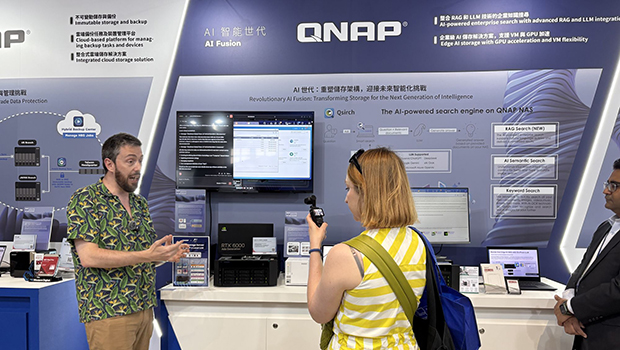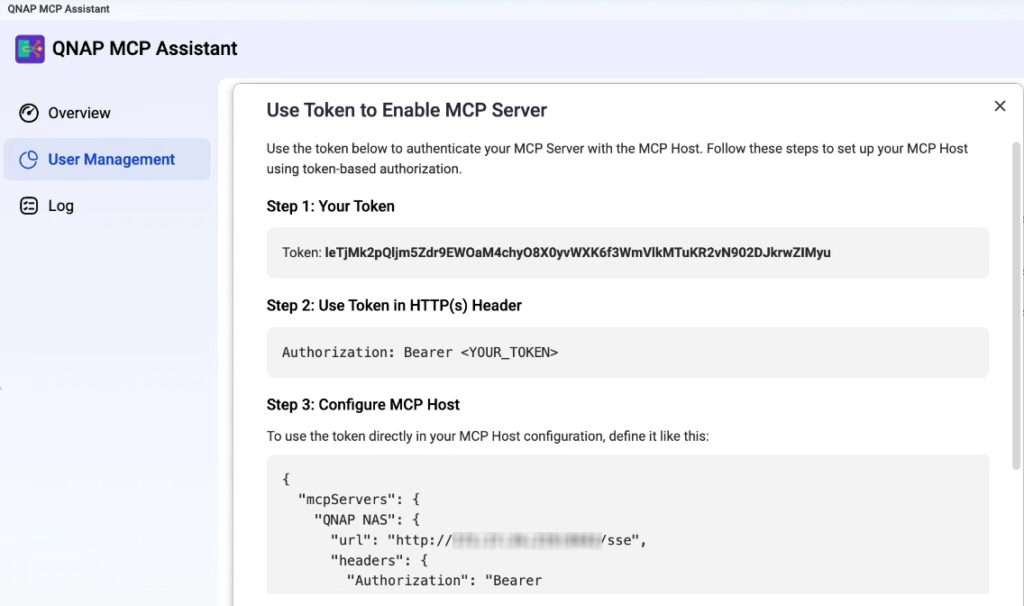
At Computex 2025 this year, QNAP held an independent exhibition “QNAP Tech Summit 2025“, attracting waves of developers, system integrators, and curious media to visit. Among the exhibition areas, one section did not showcase new hardware or high-speed performance tests, but rather something that seemed low-key yet was enough to reshape the key workflow of edge AI — QNAP will soon support MCP (Model Context Protocol). This is not just a new feature, but a major announcement that QNAP is bringing NAS into the era of intent-driven and automation-driven solutions.
What is MCP? Why will it change the role of NAS?
The MCP proposed by Anthropic (Claude) is an open protocol that enables large language models (LLMs) to “understand the environment and trigger actions.” MCP allows large language models not only to answer questions, but also to call external tools (such as search engines, workflow systems), access structured data locally or in the cloud, and trigger automated scripts or API actions.In other words, MCP is a way for language models to evolve from being speakers to becoming actors. QNAP is now bringing AI Agents with “action capabilities” to NAS for the first time.
The shortcoming of edge AI: Data is on NAS, but intelligence is still stuck in the cloud
As more and more AI models are deployed on the edge, such as in scenarios like image recognition, smart monitoring, and semantic analysis, they often cannot connect with local data and tools, becoming a “can only answer, can’t take action” customer service. Meanwhile, NAS is the first line of defense for data and the command center for IoT devices. If AI Agents can access data folder, application services, or even trigger workflows in n8n or Docker on NAS through MCP, only then will the real-time and autonomy of edge AI truly be realized. This is exactly the original intention behind QNAP launching MCP support.

n8n integration advantage: Let language models directly “drive workflows”
To enable users to quickly activate this feature, QNAP’s initial MCP integration places special emphasis on connecting with n8n, allowing developers to simply combine n8n applications in NAS, set up Token-type credentials, and enable models to trigger n8n workflows from external tools (such as Claude, ChatGPT), helping you automatically handle various tasks. For example:
- Help me download and back up the latest price list
- Automatically convert newly uploaded video and sync to YouTube after conversion
- When NAS space is detected to be nearly full, automatically empty the trash bin and unnecessary snapshots.
- Help me analyze the busiest periods of the NAS system in the past month, and provide resource allocation recommendations for adjusting settings.
You don’t need to know how to code, you just need to be able to speak. As long as you can say it, the AI Agent can “do” it for you.

Convenience without sacrificing Security
When many people learn that QNAP NAS supports MCP protocol, the first question is often: “Will AI take over my NAS?” Such concerns are quite reasonable, since language models have the ability to access data and execute commands. Without proper control, this could indeed lead to data leakage or operational risks.
QNAP has a deep understanding of this and has designed comprehensive security mechanisms in response to the openness and potential risks brought by MCP. MCP provides two main communication modes, and QNAP has developed corresponding security protection mechanisms for these two modes, balancing flexibility and information security for users:
Mode 1: Credential-based authentication
Through credential License, users can explicitly define which NAS nodes are allowed to connect models and access resources. This method supports multi-NAS management, making it especially suitable for enterprise or cross-site deployment needs, providing centralized and flexible control capabilities.
Mode 2: Token authentication
Using the Streamable HTTP protocol along with Token management and access control, there is no need to install additional programs on the MCP Host, allowing for quick integration. However, to ensure security and single responsibility, the Token mode only supports connections to a single NAS, making it suitable for individual users or single-device application scenarios.

Looking ahead to the next step for NAS in the edge AI trend
This integration plan is currently still in the internal testing phase. In the future, testing resources will be gradually opened up, as well as integration tutorials with various platforms such as n8n. Developers interested in AI toolchains, enterprise technical staff, and automation enthusiasts are welcome to seize the opportunity and visit the QNAP booth at the Bottle Cap Factory in Nangang to learn more.
🎉 Stay tuned for more updates — QNAP takes the lead, welcoming the QNAP MCP Assistant!
Get ready for the all-new QNAP MCP Assistant, launching this August! With just a single sentence, your NAS will understand and handle all your tasks. Natural language control of your NAS is no longer a dream! Join the AI revolution and be among the first to experience it ➨ A NAS assistant that’s easy enough for AI beginners to master!